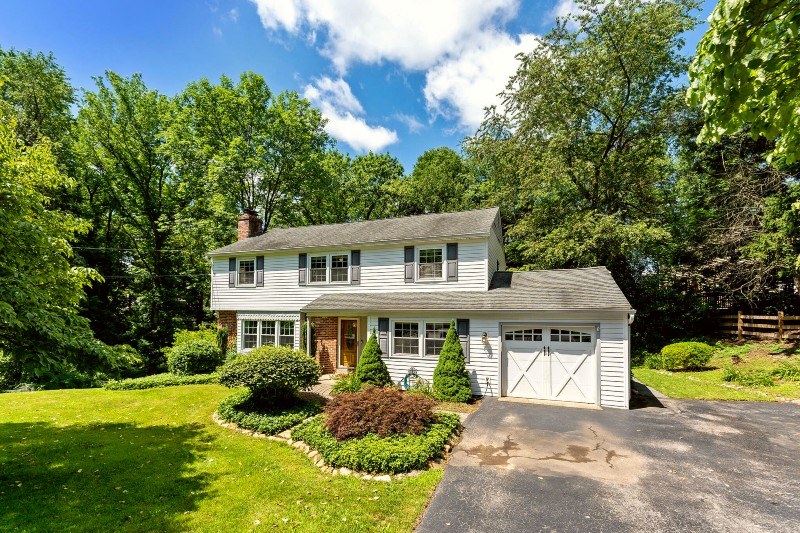
Sell My House in Philadelphia: Everything You Need to Know
Posted on Jan 01, 2021
It's been a wild time to be a homeowner. Home values in Philadelphia increased by about 12% over...

Posted on Jan 01, 2021
When the time comes for you to move on from your current home, you may wonder: should I sell or rent my house? While selling it provides you cash now, renting it can provide lucrative income - and serve as an investment down the road.
Why would you consider renting out your house? For most people, the answer is simple: money. The majority of property in the U.S. is continually rising in value, which means it can be a better bet against inflation than simply keeping your cash in the bank. Over the past year alone, for example, home prices rose an incredible 5.5% nationwide. Every local market is unique, but overall, housing is a stable investment.
When you’re a landlord, you can essentially have renters pay your mortgage and other costs for you. And if you live in a highly desirable area, you may also make money from the rental process itself.
Renting makes a lot of sense if:
On the flip side, there are plenty of situations where it doesn’t make as much sense to rent your home. You may opt to sell your home instead if:
To make sure you achieve profitability, you’ll need to crunch the numbers. Add up all your potential expenses (mortgage, insurance, HOA, etc), account for maintenance, and then take into account the local market - if $2,100 monthly rent would cover your costs and pay out a decent profit, but the local market averages $1,800 in rent, you may have trouble finding dependable renters and maintaining occupancy.
Don’t assume you know how much your home would rent for; do extensive research on local comparable properties. Check websites like Zillow, Facebook Marketplace, and PadMapper. Pay attention to your home's amenities and how it compares to the other options available.
In most cases, landlords achieve significant profit through owning and managing multiple properties - not just one. This doesn’t mean a home isn’t a great investment, though. Your profit comes when you eventually sell the property. Five years ago, the average home in Washington, DC sold for $508,250. Today, the average home there sells for $645,000. That means if a homeowner was able to cover the costs of their mortgage, taxes and other expenses by charging rent, then their home has accrued $140,000 in value.
See how much you can save when selling
Before you opt to rent out your home, figure out the cost of:
Keep in mind that even the best tenants will eventually leave - on average, renters move every two years. When this happens you may need to deal with a month, or even several months where the apartment is vacant and you aren’t receiving rental payments. It’s a good idea to set aside at least a month’s worth of rent to cover time between tenants.
Are the numbers tripping you up? Use a rental property calculator to get a better idea of the rent you'd need to charge.
A big component of figuring out whether you should sell or rent is knowing how much it will cost you to sell your home.
To make a profit on your home sale, you typically need to live there for about three years (because closing costs will eat into your profits, and because homes appreciate, on average, about 4% a year). And the longer you pay off your mortgage the better, because mortgages are front loaded (you mostly pay off the interest on the loan in the beginning).
Chatting with a local agent is the best way to figure out how much you'd spend on selling your home, because many costs are state or even city specific (in Pennsylvania sellers have to pay a deed transfer tax fee that amounts to thousands of dollars, but Colorado sellers do not).
Agent commission fees will eat up the bulk of your profits. In a traditional transaction, sellers pay 3% to the buyer agent and 3% to the listing agent, for a total of 6%. For a $500,000 home, that's an incredible $30,000.
Houwzer only charges 1% for full listing services and recommends 2-3% for the buyer's agent, meaning that sellers can save up to 50% on commission fees.
Although it may not feel like it, becoming a landlord is, essentially, becoming a self-employed small business owner. This means you need to pay taxes on your rental income. According to the Internal Revenue Service’s (IRS) website,
“If you own rental real estate, you should be aware of your federal tax responsibilities. All rental income must be reported on your tax return, and in general the associated expenses can be deducted from your rental income.”
And when it comes to deductions, you’re allowed to deduct a wide range of expenses:
“Necessary expenses are those that are deemed appropriate, such as interest, taxes, advertising, maintenance, utilities and insurance. You can deduct the costs of certain materials, supplies, maintenance, and repairs that you make to your rental property to keep your property in good operating condition.”
However, you can’t deduct the cost of improvements - so if you decide to redo the kitchen to make your home more appealing, don’t expect to get a tax break for it.
When you rent out your home for someone else to live in, you become a landlord. Here’s some of the challenges you’ll need to learn how to navigate once you don this hat.
Maintenance:
When people rent a property from you, they expect timely responses to any issues or questions they have. Whether it’s a leaky sink or a washing machine that won’t turn on, expect to have to deal with these issues promptly. Most industry experts recommend setting aside at least 1% of your home’s value for annual maintenance expenses. So for a $250,000 home, have at least $2,500 on hand to cover both anticipated (example: hiring someone to plow the driveway) and unexpected (example: water heater replacement) costs.
Many landlords - especially those who aren’t local - opt for property management companies that take care of the day-to-day requests and responsibilities of being a landlord. Management companies collect rent, communicate with tenants, arrange for inspections/repairs, and potentially help you screen for new tenants. Expect to pay about 10% of the monthly rent for a property management company, and be aware that you’ll still be on the hook for paying for repairs - you just won’t need to be fielding complaints from renters, or contacting the plumber yourself.
Evictions:
COVID-19 threw many renters for a loop, financially speaking: an estimated 31% of U.S. renters didn’t pay their rent at the beginning of April 2020. While this is an unusual occurrence, it does speak to a potential risk you take on when renting out your home. On average, there are 3.6 million eviction cases filed every year in the U.S.
Even though you can screen applicants by calling up past landlords, requiring good credit, and asking for proof of income, life happens. Your renters may have to deal with unexpected illnesses or job loss - or they may simply decide to stop paying. When this happens, you’ll need to make sure you have enough money to still cover your mortgage despite the renter(s) not paying - in all likelihood, you will need to eat the loss yourself.
Emotions:
Whether you have to evict someone, collect late rent or simply have difficult conversations about keeping the noise down or not smoking indoors, being a landlord often involves emotional labor. If you’re someone who’s more sensitive to confrontation, you might be better off hiring a property manager to deal with issues as they arise.
While renting your home can be a great way to build on your investments, it’s worth taking time to consider whether you’re actually ready to take on the stress and responsibility involved.
Should I sell my house or rent it out: do you plan on coming back?
For homeowners who may need to move for jobs or school, renting out their home can ensure they have a house to come back to later on. This can be a huge advantage in competitive markets like Washington, DC or Denver, where reasonably-priced homes are often snapped up quickly in bidding wars. Knowing that the move back doesn’t require the stress of months of house hunting can be a huge plus. And if home prices have risen in the time you’ve left, being able to move into your rental property can help you save significantly.
Before renting your house out for this reason, make sure you understand your tenants' rights and your rights as a landlord. In most states and cities, if your tenant is in a month-to-month contract with you they require a full 30 days notice to vacate. And if you’ve signed a longer lease, like six months or a year, then you will need to honor the terms of the lease agreement.
Of course, you can always rent out your house now and opt to sell it in the future if a renter damages your floors and gets on your last nerves. What you should keep in mind, though, is that rented properties can be more difficult to sell.
“The challenge is that it’s really hard to sell a tenant-occupied property,” explains Gesswein. “It’s generally much easier to sell the property once it's vacant because even though the tenants will say they’ll allow showings, they usually don’t. They tend to be difficult.”
It’s worth keeping in mind that interested buyers will often want to view homes on the same day, but many leases require 24 hours notice before a landlord comes by, which can create a difficult quandary when you’re trying to sell your home.
There are advantages and disadvantages to renting your home, rather than selling it immediately. If you’re unsure about your home’s current value and whether it would sell for a fair price in the current market, consider contacting a local agent for a consultation. They can give you a better idea of whether it makes sense to sell now or wait and rent.
Thinking about selling your home in the near future? Learn how our full service, salaried agents can save you an average of $15,000.
Subscribe to our newsletter to get essential real estate insights.

Posted on Jan 01, 2021
It's been a wild time to be a homeowner. Home values in Philadelphia increased by about 12% over...

Posted on Jan 01, 2021
Disclosure law dictates what homeowners have to tell potential buyers about their property. If your...

Posted on Jan 01, 2021
Considering how hot the current housing market is, it’s no surprise that plenty of sellers are...